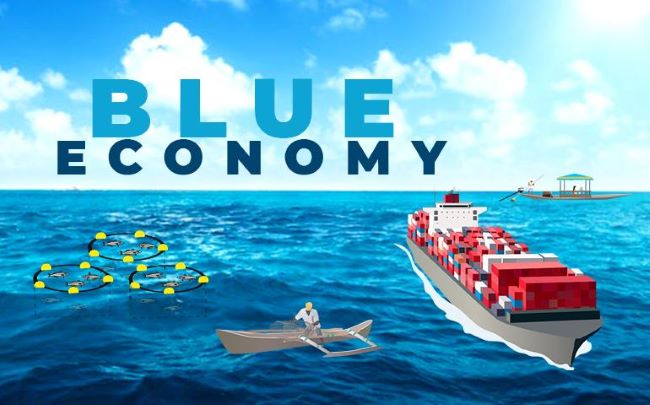 Stakeholders in Nigeria’s blue economy are charting a new course focused on tackling challenges hurting the growth of the maritime sector.
Stakeholders in Nigeria’s blue economy are charting a new course focused on tackling challenges hurting the growth of the maritime sector.Accordingly, the Alfe City Institution, an advocacy outreach, has mobilised stakeholders, including the Federal Government, in that direction.
The Lagos-based leading promoter of blue economy said on Wednesday that it was set to begin the initiative with a conference on blue economy and ecosystem from Nov. 5-7 in Lagos.
Mr Soji Adeleye, its Chief Executive Officer, in a statement on Wednesday, identified the challenges they were facing to include low productivity, unemployment, transportation, infrastructure deficit and economic stagnation.
He said some of the recommendations from the institution’s earlier conferences were fundamental to the prospect of creating the climate to achieve a sustainable Nigerian economy.
According to him, the conferences worked out numerous recommendations that included identifying states’ costal projects that are at advance stages of implementation that could benefit from immediate, specific assistance and support.
“New ports must be constructed, coastal roads and railway networks are of primary importance.
“The government must consider new alternatives for financing and creating policies to encourage non-governmental ownership.
“Government must liberalise ownership and management of ports and other infrastructure to make up for its current fiscal constraints,” he said.
He said that Public Private Partnership efficiency at the moment was constrained by its structure and the subsisting investment environment.
“The National Assembly should look at the Infrastructure Concession Regulatory Commission regime to make it more proactive in its concessionary roles.
“There are many uncompleted infrastructural development projects along the coast; government should identify those projects that could be immediately revamped.
“The conference agreed on the urgent need for the National Assembly to create the legislative environment for a sustainable Nigerian blue economy by making the relevant legislation to drive the new ecosystem,” he stated.
Adeleye added: Hope must be visible; there must be a perception that things are different, that the future is bright.
“In the face of the many chronic, socioeconomic challenges facing the country, the anxiety of waiting to find out how the government intends to implement Nigeria’s own blue economy is frustratingly stressful.
“The reality of the Nigerian economy is the complete absence of a sustainable foundation.
“The analogy of a ‘house built without a foundation’ would be apt. The practical question is how do you solve this problem knowing the ‘House’ is also the habitat?
“A Nigerian Blue Economy is a unique opportunity to engineer a sustainable new foundation for a new Nigerian economy and leverage this to correct the omission of the past.”
Adeleye said that the ecosystem programme was really important and made urgent by the recent civil protest.
“The Nigerian Blue Economy Ecosystem is the total sum of the resources of the ocean in our EEZ, the goods and services conveyed in and out by ships through our seaports, the business of shipping, the infinite renewable energy source .
“It’s the rivers that deposit the minerals from hinterland into the ocean. It’s the sun, sand and the sea, the airports, the rail, the automobiles network that transports the tourists to the hotels and resorts on the ocean front.
“It’s all these, the sustainable management of it for the benefit of the people, that is the prospective Nigerian Blue Economy Ecosystem.
“Our opinion is that a maximalist interpretation of Nigeria’s own Blue Economy is crucial to meeting the exigencies of the moment,” he said.
The CEO said that this informed the bringing of all elements of the Blue Economy together for the ecosystem conference to drive the policy formulation and legislation.
“We believe a potential construction of 10 new ports and port cities as part of this broad restructuring plan.”
Other stakeholders in the task of building and sustaining a strong and viable blue economy are the NASS, the littoral states, local and international financial institutions and Maritime operators.






















